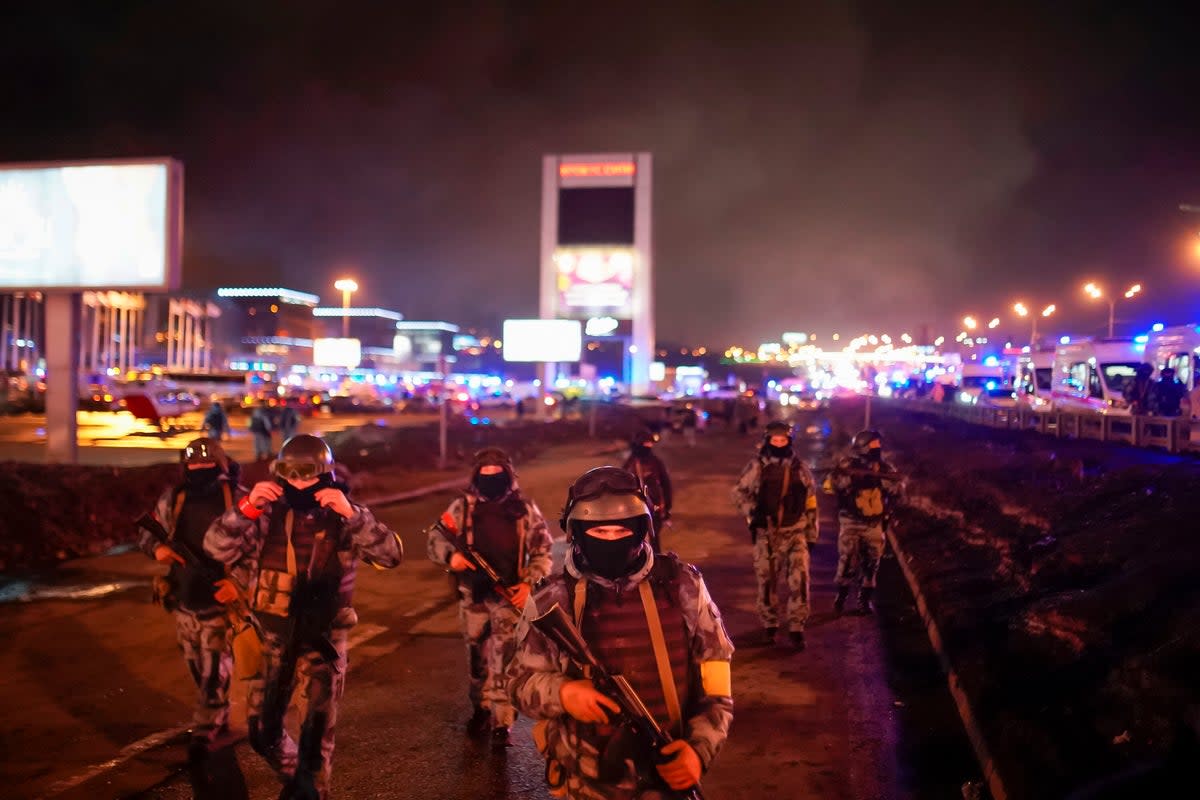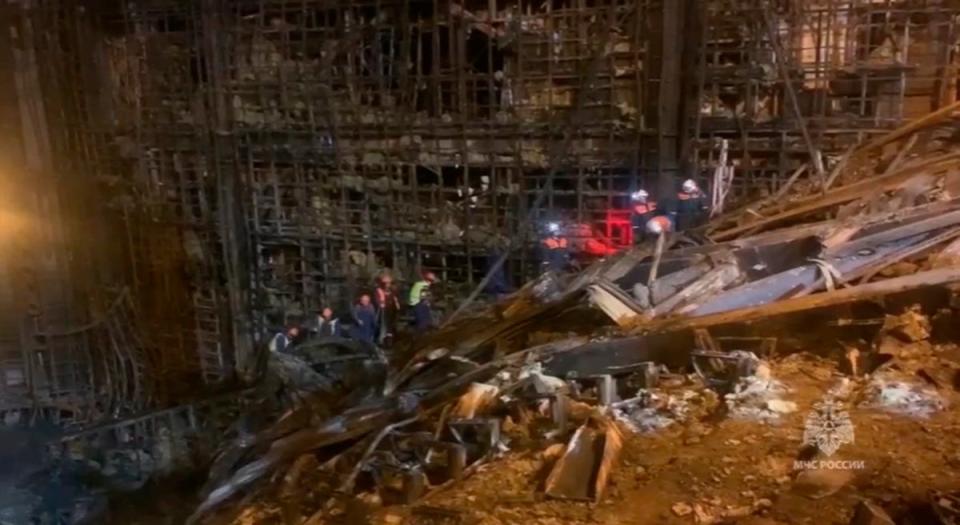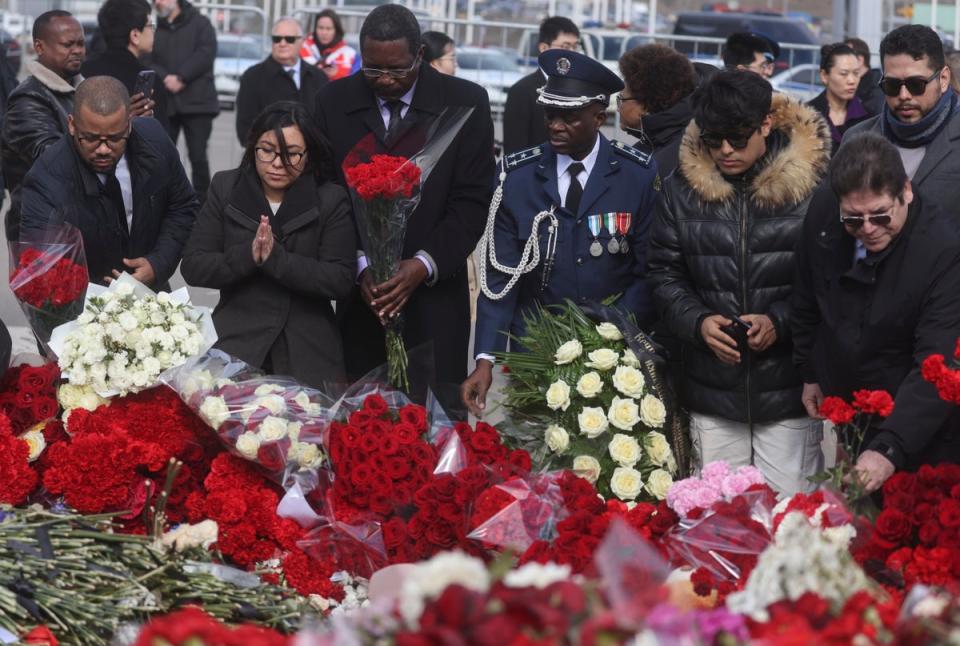US warned Moscow that Crocus City concert hall was terrorist target weeks before attack, say officials

More than a fortnight before the deadly attack on Crocus City Hall in Moscow killed nearly 150 people, the US warned Russia that the popular concert venue was a likely target, US officials have revealed.
The claims are the latest in a string of revelations that cast fresh doubt on President Vladimir Putin’s suggestion that US warnings were too vague to help pre-empt the assault, as well as his refusal to blame Isis for the killings.
The specifics of the warning, reported by The Washington Post, also raises questions about why Russia was not better prepared for the attack, which killed at least 144 people, according to the latest estimates - including six children. Vladimir Solovyov, Russia’s top propagandist, compared the attack to Al-Qaeda’s 9/11 attack on New York during an interview with American conspiracy theorist Alex Jones.
Previously, Washington’s National Security Council acknowledged sharing information with Moscow “about a planned terrorist attack in Moscow”, but did not mention Crocus City Hall specifically.

However US officials, speaking on the condition of anonymity, now claim that on March 6, Washington told Moscow that the concert hall was a potential target. The information sharing is part of a “duty to warn” policy upheld by nations across the world, irrespective of their relationship.
The private warning came a day before a public message from the US embassy announcing that it was “monitoring reports that extremists have imminent plans to target large gatherings in Moscow, including concerts”.
The Kremlin did not comment on the latest claims but Sergei Naryshkin, the head of Russia’s Foreign Intelligence Service, reiterated on Tuesday that the US warning had been “too general” to act upon.
“It did not allow us to fully identify those who committed this terrible crime,” he said, according to comments quoted by the state-run Interfax news agency.
Just three days before the deadly attack on March 22, Putin dismissed the US warnings as “outright blackmail” and attempts to “intimidate and destabilise our society”.
After a 24-hour public absence following the attack, during which Isis Khorasan, an offshoot of the Isis terrorist group, claimed responsibility, Putin quickly blamed Ukraine without providing evidence. US, UK and French officials have since said they believe the Isis-K claims of responsibility are genuine.

Putin did belatedly admit that Isis terrorists were responsible for the attack but added that Russia was still looking for who was culpable, a thinly-veiled nod to Ukraine, who have denied any involvement.
Analysts have warned that Putin is likely to use the attack as a pretext to ramp up his war on Ukraine and win further support for what he euphemistically calls his “special military operation”.
He has regularly accused Ukraine of carrying out “terrorist” activity in Russia, a reference to Kyiv’s long-range drone attacks on oil refineries across the west of the country, as well as the sponsoring of anti-Putin militias who have crossed into the border regions of Belgorod and Kursk to carry out raids.
Putin has also claimed, without providing evidence, that the four gunmen involved in the Crocus City Hall attack were detained on their way to Ukraine, however Belarusian leader Alexander Lukashenko has also said that the suspects were initially heading for Kremlin-affiliated Belarus.
On Wednesday, Russia’s defence ministry claimed that roughly 16,000 people had signed contracts with the military since the attack on the concert hall, many of whom “indicated their desire to avenge those killed in the tragedy that occurred on 22 March”.
The Independent could not verify these numbers, nor can Russian MoD figures relating to military recruitment be taken at face value. However, the claims nonetheless align with suggestions that Putin will use the attack as a means to further his war in Ukraine, irrespective of who is responsible.
Last week, Reuters reported that Iran, a key ally of Russia, also warned Moscow that Isis-K was planning an attack, citing several anonymous officials in Tehran.

 Yahoo News
Yahoo News 
